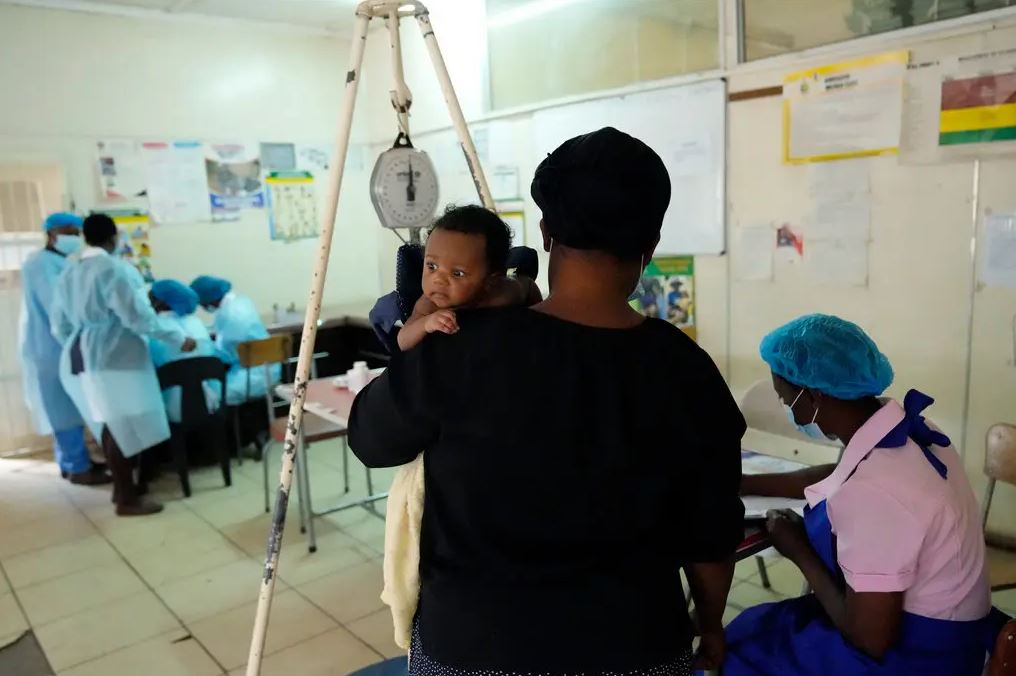In Zimbabwe, a measles epidemic has claimed the lives of over 700 children and infected hundreds more, underlining the dangers of declining kid vaccination efforts throughout the world.
As of September 6, the Ministry of Health and Child Care of the nation reported more than 6,500 instances of the disease, including 704 fatalities. Since then, it has not disclosed any new figures. This epidemic is the consequence of a number of concerning elements that are putting the health of children in a number of different nations at risk.
During the height of the Covid-19 outbreak in Zimbabwe, the rate of routine immunisation declined considerably. Anxious parents remained away from health facilities, health care staff were shifted from ordinary immunisation programmes to the Covid-19 pandemic response, and school closures and extended lockdowns prevented the typical outreach initiatives from being successful.
In July, the World Health Organization and UNICEF issued a warning that millions of children, the vast majority of whom were living in the world’s most impoverished nations, had skipped out on some or all of their childhood vaccinations as a result of covid lockdowns, armed conflicts, and other impediments. The agencies of the United Nations referred to the situation as the “biggest backslide in regular vaccination in 30 years” and issued a warning that, when paired with fast growing rates of hunger, it created circumstances that might put the lives of millions of children in jeopardy.
Prior to the epidemic, vaccination coverage in Zimbabwe was already on the decline and has continued to do so every year since 2017. This is due to the fact that a decades-long political and economic crises has decimated the country’s public health system.
The shortage of workers in Zimbabwe’s healthcare sector is catastrophic. Workers in the health care industry have left Zimbabwe for positions in neighbouring South Africa and other high-income nations in search of substantially greater earnings than the pitiful wages they were receiving in Zimbabwe, which were sometimes not received at all.
Some evangelical and Apostolic pastors have rejected vaccination for a long time, claiming that their congregation’s prayers and precious stones are sufficient to protect the faithful. These pastors have also threatened to deport mothers who take their children to clinics.
In April, the town of Makabvepi, which is located close to the border with Mozambique, was where the first cases of this epidemic of measles were recorded. According to Dr. Cephas Fonte, the medical officer for Mutasa District, the first children to pass away from measles were buried as swiftly as possible, and their deaths were not recorded. This was despite the fact that district health professionals were made aware of the existence of measles. After a large Easter service and then a Passover celebration in July that drew worshipers from all over the country, the Johane Marange Apostolic Church became the epicentre of an outbreak of measles in Zimbabwe. The children who passed away belonged to families that were members of the church. Measles quickly spread throughout the entire country.
The organisation takes a stance against vaccinations in the public arena. It is a significant voting group that is strongly linked with President Emmerson Mnangagwa, who was present for the Passover celebration.
In late 2020, the Ministry of Health and Child Care acknowledged that Covid had thwarted immunisation initiatives; nonetheless, a catch-up measles vaccination campaign targeting children from infancy up to age 5 did not begin until just this past month, even as the number of reported deaths started to rise. The campaign has the endorsement of major international health agencies, but these organisations have declined to go on the record to The New York Times because they believe the topic to be politically contentious.
Because many children in Zimbabwe suffer from malnutrition, they have a higher risk of developing severe symptoms from measles. In each of the previous four years, the average person’s income has gone down, but the cost of food has skyrocketed. This is due to a number of causes, including grain shortages brought on by Russia’s invasion of Ukraine, as well as drought and rising temperatures brought on by climate change.
In 2009, during the height of the country’s hyperinflation crisis, Zimbabwe saw its most recent major measles epidemic. There were almost 8,000 instances, and at least 500 youngsters lost their lives because of it. Since then, the health care system has been strapped for resources, which has made it difficult to increase vaccine coverage.
During the previous year, there was an outbreak of typhoid that resulted in a 10-day campaign. During this campaign, three million children were immunised against typhoid and polio and given vitamin A, which lessens the severity of measles. However, these children were not vaccinated against the measles virus.
On September 4, Viola Mombeyarara’s daughter Anenyasha, who was 20 months old, passed away. The measles infected each of her three older children, but they all made a full recovery. However, the infant passed away as a result of severe dehydration brought on by vomiting, diarrhoea, and fever.
A nurse at a clinic close to Anenyasha’s family home in Muzarabani, in the northern part of the country, diagnosed her with measles. However, Anenyasha’s mother, who is a farmer and a member of the Johane Marange church, is convinced that there were other factors that contributed to her daughter’s passing.

